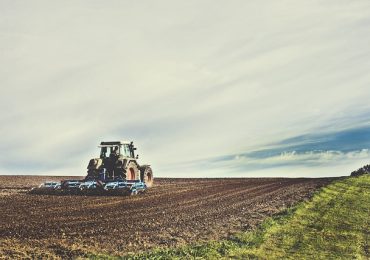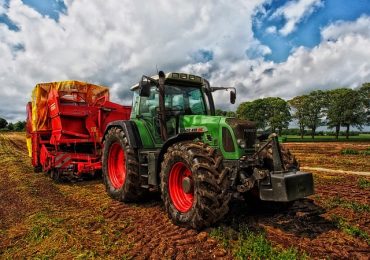
When it comes to agriculture, making the right decisions can be the difference between a bountiful harvest and a season of setbacks. One of the most critical choices a farmer can make is selecting the right farm equipment. From tractors and combines to irrigation systems and specialized machinery, the options can be overwhelming. The decision-making process involves considering various factors such as the size of your operation, your budget, and the specific needs of your crops or livestock.
In this blog post, we’ll explore the art of making smart decisions when purchasing farm equipment. We’ll provide valuable insights, tips, and considerations to help you invest wisely in equipment that will optimize your farm’s efficiency and productivity. Let’s get started.
Research and Define Your Needs
Before embarking on the process of purchasing farm equipment, it is crucial to conduct thorough research and clearly define your specific needs. Start by assessing the unique requirements of your farm, taking into account factors like farm size, crop types, and livestock. Engage in discussions with experienced farmers and agricultural experts to gain valuable insights into the most suitable equipment for your operations.
Understanding your precise needs is the foundation for making a smart decision when selecting equipment, as it ensures that the machinery you acquire will be optimally tailored to your farm’s demands, enhancing efficiency and productivity.
Set a Budget
Establishing a well-defined budget is a pivotal step in the process of acquiring farm equipment. Your budget should encompass not only the initial purchase cost but also ongoing expenses, such as maintenance, fuel, and potential repairs. It’s essential to consider your financial capabilities and long-term objectives while setting your budget.
Additionally, explore available financing options, grants, or incentives that may aid in your purchase. A clear budget not only prevents overspending but also ensures that you make a financially sound decision, aligning with your overall farm management strategy and safeguarding your economic sustainability in the agricultural industry.
Evaluate Equipment Options
When it comes to purchasing farm equipment, a careful evaluation of available options is paramount. Start by comparing various equipment models and brands in the market to determine which aligns best with your farm’s requirements. Assess factors such as efficiency, reliability, fuel consumption, and ease of use. It’s also important to look for features like warranties, available attachments, and compatibility with your existing machinery. Keep an eye out for deals, including options like trattori agricoli usati (used agricultural tractors), which can be cost-effective while still meeting your needs. A comprehensive evaluation ensures that the equipment you choose not only fits your budget but also optimizes your farm’s productivity.
Assess Long-Term Costs
Beyond the initial purchase price, assessing the long-term costs of farm equipment is a critical consideration. Calculate the total cost of ownership, factoring in maintenance, fuel, and potential repair expenses over the equipment’s lifespan. Take into account the expected durability and potential for depreciation. It’s also wise to consider the availability of replacement parts and skilled technicians for repairs, as this can significantly impact ongoing costs.
By conducting a comprehensive evaluation of the long-term financial implications, you can make a more informed decision that aligns with your budget and ensures that your farm equipment remains a sustainable and profitable investment for years to come.
Sustainability and Environmental Impact
In the modern agricultural landscape, considerations regarding sustainability and environmental impact are more vital than ever. When purchasing farm equipment, it’s crucial to assess its ecological footprint. Evaluate factors such as emissions, fuel efficiency, and overall environmental sustainability. Explore alternatives like electric or solar-powered machinery, which can significantly reduce your carbon footprint.
Additionally, ensure that the equipment complies with local environmental regulations and safety standards. By prioritizing sustainable farming, you not only contribute to a healthier planet but also position your farm for long-term success, as sustainability practices often lead to cost savings and improved relationships with environmentally-conscious consumers.
Seek Advice and Test Equipment
Before finalizing your purchase of farm equipment, seek guidance and conduct thorough testing. Visit local dealers and attend agricultural expos to gain insights into the latest innovations and technologies. Additionally, reach out to fellow farmers and agricultural experts to gather recommendations and insights. Request equipment demonstrations or trial runs on your own farm to assess the machinery’s performance in your specific environment.
This hands-on experience is invaluable in determining whether the equipment meets your needs and expectations. Taking your time, consulting with others, and testing the equipment ensures that you make an informed decision, ultimately leading to a more successful and productive farming operation.
Consider Resale Value
Assessing the resale value of farm equipment is another crucial subheading in the decision-making process. As farming technology advances, it’s vital to consider how well your equipment will hold its value over time.
Certain brands and models tend to retain their value better than others, which can be a substantial advantage when you decide to upgrade or replace equipment. This step ensures that your investment remains financially sound, even if your farming needs change, and can provide you with the means to invest in newer, more efficient machinery down the road.
Review Manufacturer Reputation

An often overlooked but critical factor in purchasing farm equipment is the reputation of the manufacturer. Investigate the manufacturer’s track record for quality, customer support, and reliability. Established and reputable manufacturers tend to produce more durable and reliable machinery, reducing the risk of unexpected breakdowns and costly repairs.
Reading reviews, speaking with other farmers, and looking into the manufacturer’s history can provide valuable insights into the overall quality and performance of the equipment you’re considering. Prioritizing a strong manufacturer reputation ensures a greater likelihood of long-term satisfaction and success in your farming endeavors.
Making informed decisions when purchasing farm equipment is essential for the efficiency and sustainability of your agricultural operation. By thoroughly researching and defining your needs, setting a clear budget, and evaluating equipment options, you can ensure that your investment aligns with your farm’s requirements. Consider the long-term costs and the environmental impact, while also seeking advice and testing equipment to make confident and sustainable choices. This comprehensive approach will not only improve your farm’s productivity but also contribute to your long-term success in the ever-evolving agricultural industry.